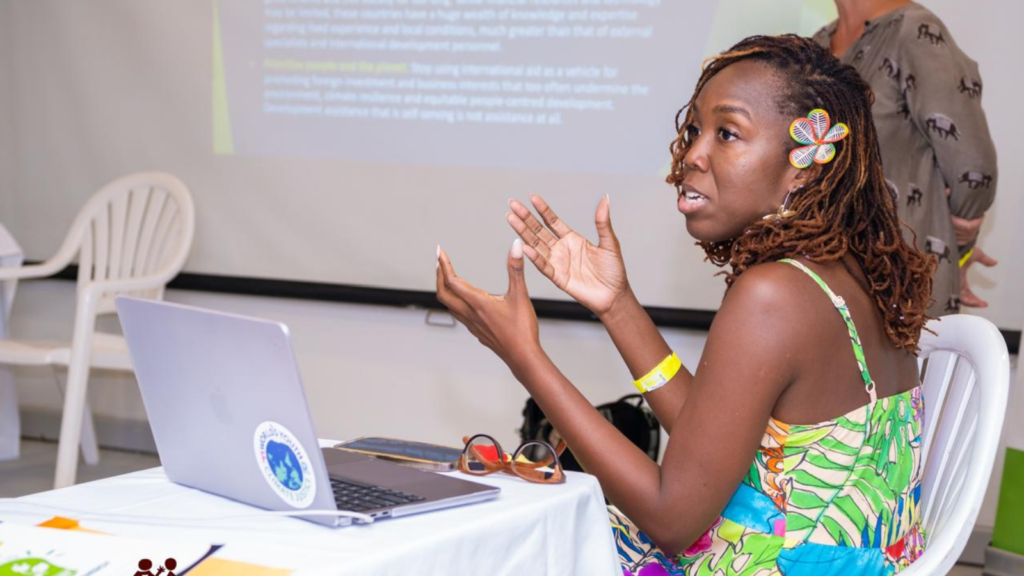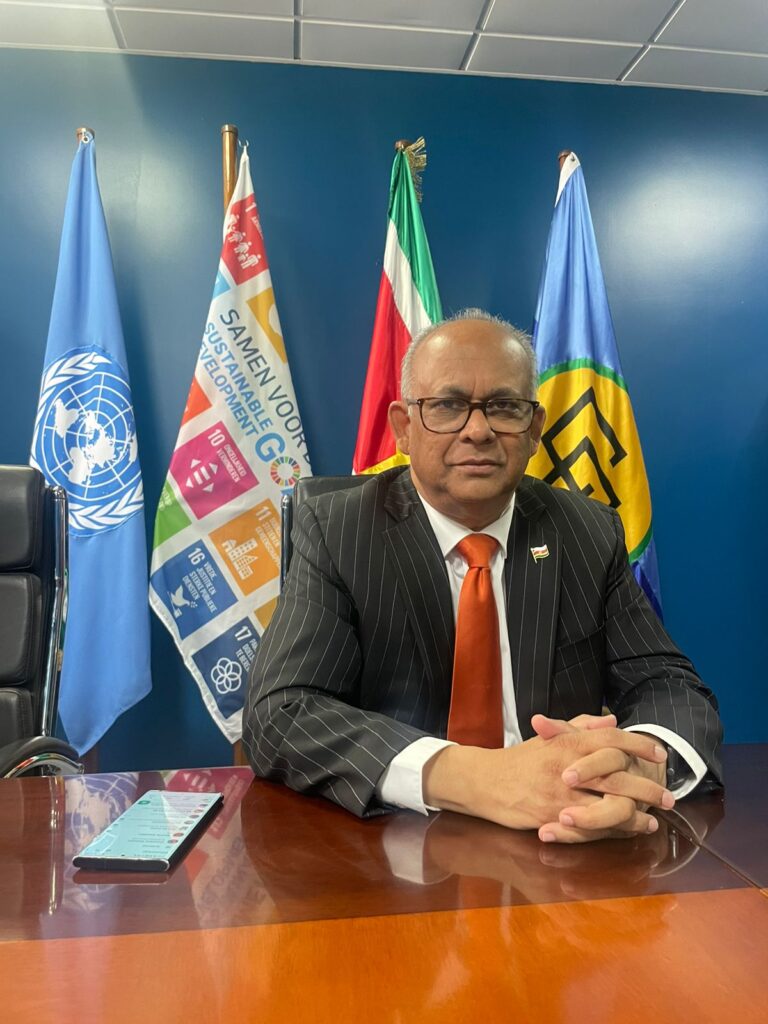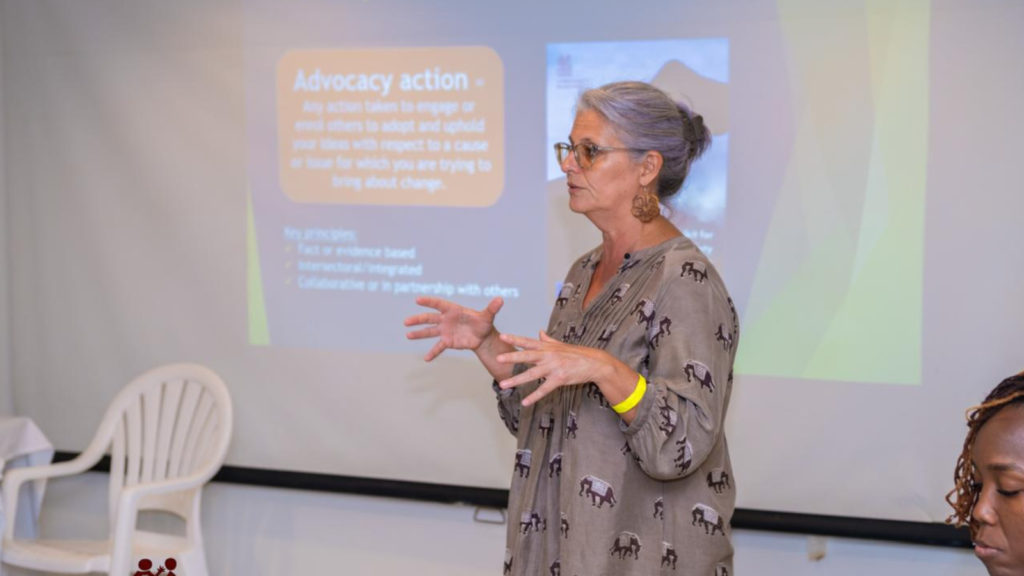The Small Island Developing States (SIDS) are gearing up to attend the fourth SIDS conference in Antigua & Barbuda. According to Albert Ramdin, Minister of Foreign Affairs, International Business & International Cooperation (BIBIS) in Suriname, the issue of equitable development financing should certainly be a high priority on the agenda. Ramdin was supported in this stance by Rueanna Haynes, a specialist in international climate legislation and Director of Climate Analytics Caribbean. According to Haynes, the draft text of the outcome document for SIDS4, called the Antigua & Barbuda Agenda for SIDS (ABAS), lacks depth in addressing the issue of equitable development financing.
Ramdin argued that SIDS have been sidelined for a long time compared to the rest of the world but are now fulfilling an increasingly significant role.
“Therefore, during the SIDS4 conference, a new direction must be developed for the small economies of the world,” he stated.

Equitable Development Financing
Haynes explained that SIDS have made the case that they are in a special situation for sustainable development due to having unique and particular vulnerabilities and issues related to small size, and very small economies. These circumstances prevent SIDS from developing and using the traditional methods available to other countries — countries with economies of scale, countries that can borrow more, and countries that don’t face the potential for a Category 5 hurricane every year, forcing them to rebuild and erasing 200% of their GDP.

She, therefore, defined equitable financing as financing that addresses the needs of those who are the most vulnerable, with the unique circumstances of SIDS being fundamental. Haynes said that countries that are not in the position of SIDS are potentially in a better space where they have more options for economic development, which means that equitable financing should take into consideration SIDS’ special circumstances.
“Equitable financing means that SIDS should have access to more concessional forms of finance, and it means that essentially the barriers that exist right now that prevent or frustrate SIDS in trying to access finance need to be removed,” shared Haynes.
Hooks, But No Clear Actions
In the context of the SIDS outcome document, Haynes explained some hooks related to equitable development financing. For instance, the text does speak to access and the multilateral development space, taking into account the special and unique circumstances of SIDS. Also, the document speaks to lending criteria.
“So the hooks are there, but it does not go into detail. It does not provide timelines. It does not give concrete undertakings and commitments.”
This is why the Climate Analytics Director advocates for the need to follow up. She stressed that these conversations are not only happening in the context of this particular conference and outcome but also in the climate change context and the United Nations’ development discussion. She finds that there is a high need for more advocacy around this matter coming from SIDS at every level, not just the government. Haynes says that civil society can also help SIDS governments feel like they don’t have to back down when met with resistance.
She concluded by expressing her hope that the SIDS4 conference will help generate a real sense of solidarity around the issues and commitment from the governments, where civil society is treated as a valuable partner.
Biodiversity protection
Michel Garcia from the Environmental Awareness Group (EAG) in Antigua & Barbuda shared his perspective on the ABAS document. According to Garcia, the draft text lacks in terms of biodiversity loss and the critical message of biodiversity conservation.
“A lot of it refers back to previous multilateral agreements as opposed to holding governments accountable to what they have already promised to sign onto.”
Gender action
Leisa Perch from SAEDI Consulting Barbados Inc. said that the draft document is representative of the diversity of SIDS across the globe. She recognised that these documents typically come with a lot of compromises because Parties have aspects in common but also aspects that differentiate.
She called it heartening to see the level of inclusion but would like to see more on gender equality, specifically a gender action plan that comes along with the outcome document in terms of specific actions that will be taken. According to Perch, it is of critical importance to have a focus on gender equality and women’s empowerment in the context of the SIDS agenda, as well as looking at issues of social inclusion and the role and empowerment of marginalised groups and people.

Transformative pathways to Caribbean sustainable development
Haynes, Garcia, and Perch all participated in the pre-civil society summit co-hosted by the Caribbean Natural Resources Institute (CANARI) and the Environmental Awareness Group (EAG) on May 23rd and 24th, ahead of the SIDS conference. CANARI took the initiative to organise this summit, recognising the importance of supporting active and effective civil society engagement in contributing to the ABAS outcome document.
- Read also: Digging an Early Grave? The potential effects of the deep-sea mining industry on Barbados
The organisation has also developed a position paper titled “The Caribbean We Want,” starting in January this year with interactive dialogues to capture civil society recommendations. This position paper will be presented during the special event Civil Society Summit on the 29th of May during the SIDS conference.
—
This story was originally published by Suriname Herald and is contributed to Climate Tracker by Stefanie Lauchman, an alum Caribbean Climate Justice Journalism Fellow and COP28 Climate Justice Journalism Fellow.